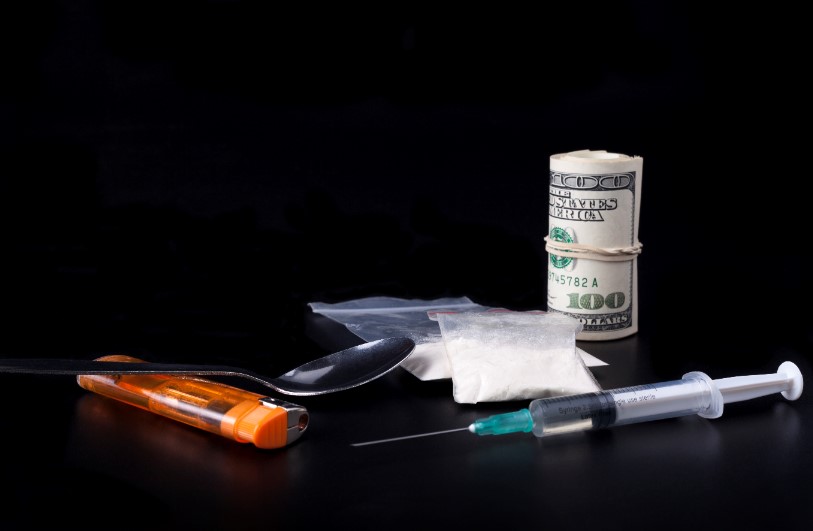Methamphetamine Treatment
Methamphetamine is a highly addictive type of drug called a stimulant. A stimulant is a drug that increases alertness and energy temporarily by increasing activity in the brain and central nervous system.
Although related to the stimulant amphetamine, which might be prescribed for attention-deficit hyperactivity disorder or other medical uses, methamphetamine is considered an illicit drug.
Illicit drugs are often addictive, are illegal when misused or acquired outside of standard medical and legal means, and are controlled by local and federal governments.
Methamphetamine is a problematic drug that can lead to serious health problems, and its misuse increased dramatically in the United States between 2008 and 2015.
Emergency hospitalizations from methamphetamine also increased by more than 240% in the same period; many as 10,000 people died of a methamphetamine overdose in 2017.
In a 2017 report from the Drug Enforcement Agency, more than 30% of government agencies surveyed listed methamphetamine as the greatest drug threat in their local areas. Methamphetamine also is known as meth, crystal meth, crank, ice, chalk, and speed.
HOW METHAMPHETAMINE IS USED
Methamphetamine is a white, bitter-tasting powder that also comes in a pill. Crystal meth is bluer and made into small rocks that resemble pieces of glass.
The drug can be taken by smoking, swallowing a pill, snorting powder through the nose, or injecting powder that has been dissolved in water or alcohol into a vein.
Aside from the short-term and long-term effects the drug has on users, it also can cause death from overdose.
STIMULANT USE DISORDER
Methamphetamine addiction might be diagnosed as a stimulant use disorder.
This is a recognized mental health disorder listed in the Diagnostic and Statistical Manual of Mental Disorders 5th edition, the guide used by psychiatrists and other medical professionals to diagnose and classify mental health disorders.
Diagnosis is based on evidence the person has impaired social behavior, risky use of drugs, and other criteria.
METHAMPHETAMINE EFFECTS
When someone takes methamphetamine, the stimulant usually causes the following:
- more rapid breathing than normal
- rapid heartbeat and sometimes irregular heartbeat
- increase in body temperature
- decrease in appetite
- increase in blood pressure
The immediate rush from methamphetamine and claims of improved wakefulness might lead some people to try the drug.
The high comes from the drug’s effects on natural brain chemicals such as dopamine. The dopamine releases quickly into reward areas of the brain.
Although users of methamphetamine might note a good feeling or high, when they first take the drug, these effects fade quickly.
Methamphetamine use eventually causes edginess, overexcitement, and even anger or fear. People using methamphetamine often ignore eating or sleeping as they binge on the drug.
LONG-TERM EFFECTS
The long-term effects of methamphetamine use are severe. They can include:
- severe dental disease
- intense itching that causes skin sores
- ongoing confusion
- paranoid or violent behavior
- hallucinations or psychosis
- extreme weight loss
- increased risk of stroke
In addition, those who inject methamphetamine are at risk for diseases caused by sharing needles or the use of dirty needles.
These include HIV or hepatitis B or C. Overdose of methamphetamine can cause stroke, heart attack, and effects on other vital organs such as the kidneys.
SIGNS OF METHAMPHETAMINE USE
To tell if someone is using methamphetamine, friends or loved ones can look for signs of abuse, such as:
- behavior indicating hallucinations or paranoia
- inability to sleep or strange patterns of sleep
- confusion, anxiety, or easy irritation
- compulsive scratching
- appearance changes, such as weight loss, poor skin or tooth problems
- extreme weight loss or anorexia
- mood swings or aggression
METHAMPHETAMINE ADDICTION
Because the temporary high methamphetamine produces in the brain fades quickly, some users begin to seek the feeling again and often, or even with higher amounts of the drug.
Because it affects how the brain experiences a pleasure, methamphetamine is difficult to quit and is used more often and more regularly.
The drug is easy to produce, which makes it too available and inexpensive. In addition, some people are more likely to be addicted to drugs due to genetic predisposition.
People who need help with addiction can call the Substance Abuse and Mental Health Services Administration’s (SAMHSA’s) National Helpline at 1-800-662-HELP (4357).
Help is available 24 hours a day, seven days a week.
METHAMPHETAMINE TREATMENT
Addiction to methamphetamine and other stimulants is a complex problem affecting work, school, and relationships. Treatment usually involves both medication and psychological therapy.
Cognitive-behavioral therapy helps people addicted to drugs understand and avoid or cope with situations in which they are more likely to use it.
Drugs called monoclonal antibodies might slow the effects of methamphetamine on the brain, but the treatment was still experimental as of late 2018.
A monoclonal antibody is a drug that helps the body’s immune system fight a specific attack. A drug called naltrexone that is used to treat alcohol use disorder might help people with methamphetamine addiction.
There are more than 14,000 specialized centers for treating drug addiction in the United States. The centers can provide behavioral therapy, medication, and other services to help people beat drug addiction.
However, anyone addicted to methamphetamine or their family members should research potential centers carefully for cost, insurance coverage, physician recommendations, and success rates. Some centers have been identified as using unethical marketing tactics.
If a person overdoses on methamphetamine, treatment usually includes restoring fluids in the body, cooling the body, and lowering blood pressure and overexcitement in the brain.
Relapse, or return to using methamphetamine, is common in people addicted to the drug.
Techniques to help reduce the possibility of relapse might include avoiding people or places associated with methamphetamine use in the past, staying busy with activities such as work, exercise, or hobbies, and building a group of supportive friends or loved ones.
Resources
Websites
“Addiction Treatment Scams Explained.” Recovery Research Institute. https://www.recoveryanswers.org/resource/scams-corruption-addiction-industry-explained/ (accessed December 12, 2018).
Gorman, Anna. “Methamphetamine Emergency Hospitalizations Increase; was Overshadowed by Opioids.” Compton Herald. December 8, 2018. hhttps://comptonherald.org/methamphetamine-use-spikes-in-us/ (accessed December 13, 2018).
“Methamphetamine.” MedlinePlus. December 21, 2018. https://medlineplus.gov/methamphetamine.html (accessed December 12, 2018).
“Principles of Drug Addiction Treatment: A Research-based Guide.” National Institute on Drug Abuse. https://www.drugabuse.gov/publications/principles-drug-addiction-treatment-research-based-guide-third-edition/drug-addiction-treatment-in-united-states (accessed December 13, 2018).
“Substance Use Disorders.” Substance Abuse and Mental Health Services Administration. October 7, 2015. https://www.samhsa.gov/disorders/substance-use (accessed December 12, 2018).
“What Is Methamphetamine?” National Institute on Drug Abuse. June 2018. https://www.drugabuse.gov/publications/drugfacts/methamphetamine (accessed December 12, 2018).
Organizations
American Society of Addiction Medicine, 11400 Rockville Pike, Suite 200, Rockville, MD, 20852, (301) 656-3920, Fax: (301) 656-3815, email@ASAM.org, https://www.asam.org/asam-home-page .
National Institute on Drug Abuse, 6001 Executive Blvd., room 5213, MSC 9561, Bethesda, MD, 20892, (301) 443-1124, https://www.drugabuse.gov/.
Substance Abuse and Mental Health Services Administration, 5600 Fishers Ln, Rockville, MD, (877) 726-4727, https://findtreatment.samhsa.gov/.








